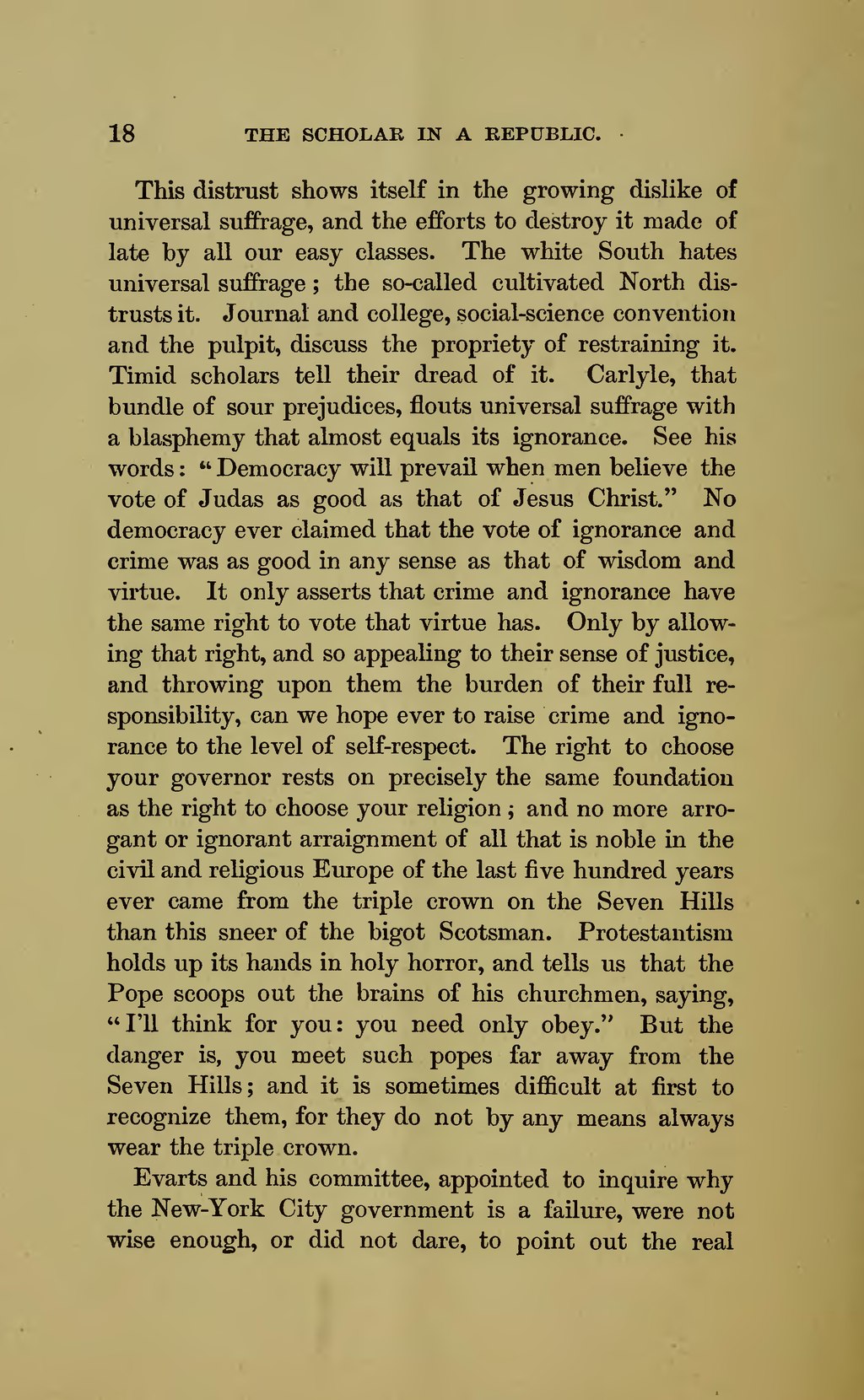This distrust shows itself in the growing dislike of universal suffrage, and the efforts to destroy it made of late by all our easy classes. The white South hates universal suffrage; the so-called cultivated North distrusts it. Journal and college, social-science convention and the pulpit, discuss the propriety of restraining it. Timid scholars tell their dread of it. Carlyle, that bundle of sour prejudices, flouts universal suffrage with a blasphemy that almost equals its ignorance. See his words: "Democracy will prevail when men believe the vote of Judas as good as that of Jesus Christ." No democracy ever claimed that the vote of ignorance and crime was as good in any sense as that of wisdom and virtue. It only asserts that crime and ignorance have the same right to vote that virtue has. Only by allowing that right, and so appealing to their sense of justice, and throwing upon them the burden of their full responsibility, can we hope ever to raise crime and ignorance to the level of self-respect. The right to choose your governor rests on precisely the same foundation as the right to choose your religion; and no more arrogant or ignorant arraignment of all that is noble in the civil and religious Europe of the last five hundred years ever came from the triple crown on the Seven Hills than this sneer of the bigot Scotsman. Protestantism holds up its hands in holy horror, and tells us that the Pope scoops out the brains of his churchmen, saying, "I'll think for you: you need only obey." But the danger is, you meet such popes far away from the Seven Hills; and it is sometimes difficult at first to recognize them, for they do not by any means always wear the triple crown.
Evarts and his committee, appointed to inquire why the New-York City government is a failure, were not wise enough, or did not dare, to point out the real
